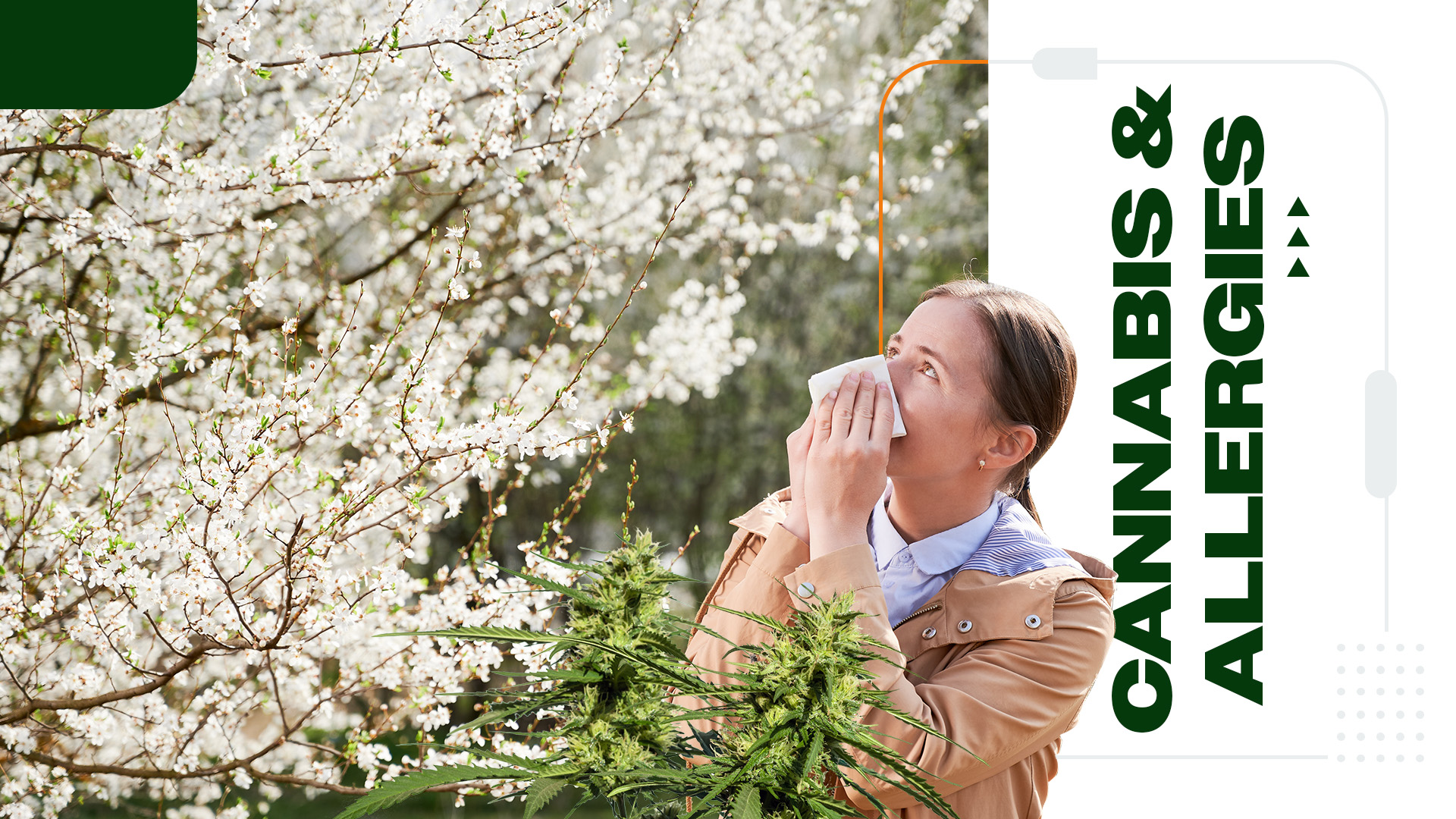As the seasons change, many of us grapple with the sneezes, itchy eyes, and runny noses associated with seasonal allergies. Traditional remedies like antihistamines can help, but they often come with side effects like drowsiness. Recently, there’s been buzz about a different kind of remedy: cannabis.
Yes, the same plant that’s already celebrated across the globe for its recreational and medicinal uses might also offer relief to allergy sufferers. In this article, we’ll explore what research shows about how cannabis could be the breath of fresh air allergy sufferers are looking for.
Understanding Seasonal Allergies
According to 2021 research published by the CDC’s National Center for Health Statistics, approximately 25.7% of adults suffer from seasonal allergies. Additionally, the findings showed that close to one in five children, or 18.9%, also experience allergies during the spring and summer months. Seasonal allergies, also known as hay fever, occur when the body mistakes seemingly harmless substances like pollen for dangerous invaders.
This mix-up prompts the immune system to release inflammatory mediators called histamines into the bloodstream in an attempt to protect the body from the perceived enemy. Histamines are the culprits behind the annoying symptoms people experience, such as sneezing, itchy and watery eyes, and a stuffy nose.
To fight back against these symptoms, many people rely on over-the-counter medicines, with antihistamines being a popular choice. Antihistamines work by blocking the action of histamines, helping to soothe allergy symptoms. Other conventional treatments include decongestants and nasal sprays. However, there are some potential drawbacks to using those. For example, antihistamines can make you sleepy and dry out your nose and mouth, while decongestants might increase your blood pressure.
The Science Behind Cannabis and Seasonal Allergies
Cannabis contains over 150 compounds known as cannabinoids, with THC (tetrahydrocannabinol) and CBD (cannabidiol) being the most prominent. THC is known for its psychoactive effects, or the “high” feeling, whereas CBD is non-psychoactive and celebrated for its potential health benefits, particularly in reducing inflammation and pain.
These effects are primarily due to cannabis’s interaction with the human body’s endocannabinoid system (ECS), a critical system for maintaining health by regulating inflammation, pain, and immune responses.
Why You Should Get Your Medical Marijuana Card
Veriheal has satisfied millions of patients nationwide by giving them access to these benefits
- Larger purchase limits
- Peace of mind
- Enhanced legal protection
- Access to higher potency strains
- Save up to 25% on cannabis purchases
- Skip the line at the dispensary
The ECS operates through a network of receptors, notably CB1 and CB2 receptors, which are influenced by the body’s natural endocannabinoids as well as cannabinoids from cannabis. THC mainly interacts with CB1 receptors in the brain and central nervous system, contributing to its psychoactive properties. In contrast, CBD has a greater affinity for CB2 receptors located in the peripheral organs, particularly those associated with the immune system, where it can exert anti-inflammatory effects.
This interaction suggests that cannabis might offer relief from allergic reactions by reducing inflammation, potentially easing symptoms like swelling and irritation in the airways, leading to less discomfort and easier breathing. However, much of the research on cannabis’s anti-inflammatory effects, particularly regarding seasonal allergies, remains preliminary and has not yet been conducted on humans. There is still a need for further research into how cannabis affects seasonal allergy symptoms specifically, despite promising early results.
Together, THC and CBD’s actions on the ECS offer a comprehensive approach to managing inflammation, suggesting a potential therapeutic avenue for those suffering from seasonal allergies. Yet, the call for more targeted research remains, emphasizing the necessity to understand fully the mechanisms through which cannabis and its components might alleviate such conditions.
Final Thoughts
The idea that cannabis might help with seasonal allergies is intriguing and carries some scientific backing, especially regarding its anti-inflammatory properties. However, the journey from potential to proven remedy is long and requires much more research.
The studies we have are just the beginning, pointing us in a hopeful direction, but they’re not enough to make cannabis a go-to solution for everyone just yet. Plus, with the legal status of cannabis varying significantly from place to place still a concern, it’s essential to tread carefully.
If you’re curious about exploring cannabis as an option for your seasonal allergies, the best first step is to have an honest talk with a healthcare provider. They can offer personalized advice, taking into account the latest research, legal considerations, and your health history. Remember, when it comes to your health, informed decisions are always the best route.
Note: The content on this page is for informational purposes only and is not intended to be professional medical advice. Do not attempt to self-diagnose or prescribe treatment based on the information provided. Always consult a physician before making any decision on the treatment of a medical condition.
Author, Share & Comments








